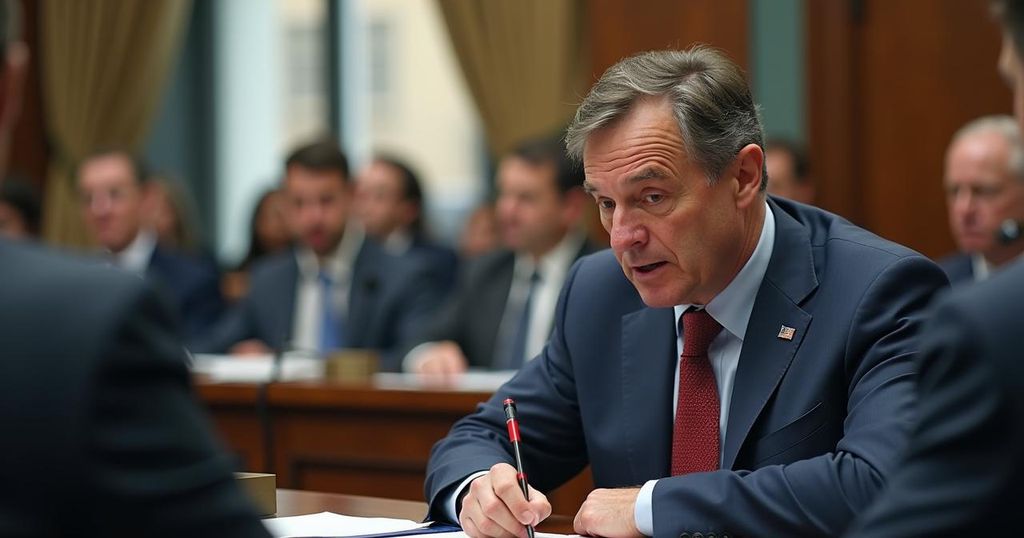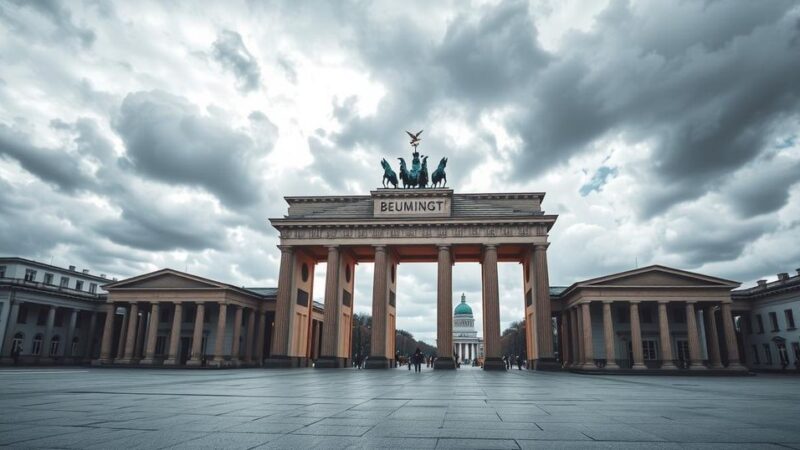Elvis Amoroso, the Venezuelan official who declared Maduro the election winner, has been missing for ten weeks, leading to rumors of his detention. His absence raises concerns about the validity of the election results amid widespread allegations of fraud, while international skepticism continues regarding Maduro’s legitimacy. The situation highlights the fraught political atmosphere in Venezuela and the implications of possible defection by key regime figures.
Elvis Amoroso, the Venezuelan official who declared Nicolás Maduro as the winner of Venezuela’s contested presidential election held in July, has been conspicuously absent from the public eye for the past ten weeks, sparking a flurry of speculation regarding his fate. This absence follows his last public appearance on August 5, when he presented documents to the Supreme Court, asserting that Maduro had secured nearly 52% of the vote. Amoroso’s absence has given rise to numerous theories concerning his whereabouts, including rumors of his detention by regime security forces assessing that he might have been plotting to defect, or reports of his arrest in Argentina leading to extradition to the United States. Opposition figures in Venezuela contend that the electoral process was severely flawed, alleging that opposition candidate Edmundo González won with over 68% of the vote, while Amoroso’s figures were fabricated under directive from high-ranking officials within the Maduro regime. International opinions overwhelmingly lean towards skepticism regarding Maduro’s claimed victory. Notably, the United States and various international bodies have cast doubt on the legitimacy of the election results. Current rumors allude to Amoroso being held at the Caracas military installation, Fuerte Tiuna, amid fears of his potential defection. This situation draws parallels to that of former oil czar Tareck El Aissami, whose enforced disappearance preceded accusations of corruption. Antonio De La Cruz, president of the Inter American Trends think-tank, noted, “This is a guy that the regime can’t allow to leave… What is keeping Maduro in power is Amoroso’s claim that he won, but if he defects and takes that away, Maduro’s claim to legitimacy collapses.” Such a defection would indeed undermine the regime’s narrative surrounding the election and could have grave consequences for Maduro’s authority. Observers stress that Amoroso’s reappearance and any admission that he had been coerced into fabricating election results could spell disaster for President Maduro. Heated discussions have emerged on social media about Amoroso’s fate, amidst a broader context of repression where thousands of dissenters have been detained under critical human rights violations. As speculation continues regarding his location, it remains clear that the political stakes surrounding Amoroso’s statements about Maduro’s election success are exceptionally high, both for himself and for the Venezuelan regime.
In recent months, Venezuela’s political landscape has been marred by controversy surrounding the results of the July presidential election. With Nicolás Maduro claiming victory amid widespread allegations of electoral fraud, the role of key officials like Elvis Amoroso, who publicly validated these claims, has become critical. The government’s legitimacy hinges on the assertions made by these figures, and their sudden disappearances naturally incite speculation regarding their safety and the regime’s internal dynamics. The situation is further exacerbated by a climate of oppression, where dissenters face severe repercussions, leading to a complex web of political maneuvering and fear within the country.
Elvis Amoroso’s prolonged absence from the public sphere is a significant indicator of the tense political climate in Venezuela. His initial declaration supporting Maduro’s electoral victory links directly to the regime’s legitimacy, which is now threatened if he were to confess to any misrepresentation. With ongoing rumors of his detention and the prevailing strategy of repression against dissenters, the developments surrounding Amoroso serve as a crucial focal point in understanding the country’s political turmoil and the regime’s precarious grip on power.
Original Source: www.miamiherald.com






